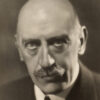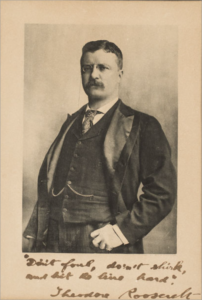[T]here is a vast difference between games and play. Play is played for fun, but games are deadly serious, and you do not play them to enjoy yourself.
Maurice Baring (1874-1945) English man of letters, writer, essayist, translator
The Puppet Show of Memory, ch. 5 “School” (1922)
(Source)
Quotations about:
game
Note not all quotations have been tagged, so Search may find additional quotes on this topic.
It would be a pretty good bet that the gods of a world like this probably do not play chess and indeed this is the case. In fact no gods anywhere play chess. They haven’t got the imagination. Gods prefer simple, vicious games, where you Do Not Achieve Transcendence but Go Straight To Oblivion; a key to the understanding of all religion is that a god’s idea of amusement is Snakes and Ladders with greased rungs.
Every game ever invented by mankind, is a way of making things hard for the fun of it. The great fun, of course, is in making the hard look easy.
John Ciardi (1916-1986) American poet, writer, critic
An Introduction to Literature: How does a poem mean? (1959)
(Source)
HENRY: I see you stand like greyhounds in the slips,
Straining upon the start. The game’s afoot;
Follow your spirit: and upon this charge,
Cry “God for Harry, England, and Saint George!”William Shakespeare (1564-1616) English dramatist and poet
Henry V, Act 3, sc. 1, l. 34ff (3.1.34-37) (1599)
(Source)
‘Tis hard bewildering riddles to compose
And labour lost to work at nonsense prose.[Turpe est difficiles habere nugas,
Et stultus labor est ineptiarum.]Martial (AD c.39-c.103) Spanish Roman poet, satirist, epigrammatist [Marcus Valerius Martialis]
Epigrams [Epigrammata], Book 2, epigram 86 (2.86.9-10) (AD 86) [tr. Francis & Tatum (1924), #105]
(Source)
Discussing writing elaborate or highly stylized poetry forms. (Source (Latin)). Alternate translations:
Disgraceful 't is unto a poet's name
Difficult toys to make his highest am:
The labour's foolish that doth rack the brains
For things have nothing in them, but much pains.
[tr. Killigrew (1695)]
How foolish is the toil of trifling cares.
[tr. Johnson (1750); he credits the translation Elphinston]
How pitifull the boast of petty feats!
How idle is the toil of mean conceits!
[tr. Elphinston (1782), 2.76]
It is disgraceful to be engaged in difficult trifles; and the labour spent on frivolities is foolish.
[tr. Amos (1858), 2.19]
It is absurd to make one's amusements difficult; and labor expended on follies is childish.
[tr. Bohn's Classical (1859)]
'Tis mean and foolish to assign
Long care and pains to trifles light.
[tr. Webb (1879)]
Disgraceful ’tis to treat small things as difficult;
‘Tis silly to waste time on foolish trifles.
[ed. Harbottle (1897)]
'Tis degrading to undertake difficult trifles; and foolish is the labour spent on puerilities.
[tr. Ker (1919)]
'Tis hard bewildering riddles to compose
And labor lost to work at nonsense prose.
[tr. Francis & Tatum (1924)]
It's demeaning to make difficulties out of trifles, and labor over frivolities is foolish.
[tr. Shackleton Bailey (1993)]
It is absurd to make trifling poetry difficult, and hard work on frivolities is foolish.
[tr. Williams (2004)]
The Latin phrase was used by Addison as the epigram of The Spectator #470 (29 Aug 1712).
Somehow he has internalized the ur-cultural narrative: you grow up, go to university, get a job, meet Ms. Right, get married, settle down, have kids, grow old together … it’s like some sort of checklist. Or maybe a list of epic quests you’ve got to complete while level-grinding in a game you’re not allowed to quit, with no respawns and no cheat codes.
The chessboard is the world; the pieces are the are the phenomena of the universe; the rules of the game are what we call the laws of Nature. The player on the other side is hidden from us. We know that his play is always fair, just, and patient. But also we know, to our cost, that he never overlooks a mistake, or makes the smallest allowance for ignorance. To the man who plays well, the highest stakes are paid, with that sort of overflowing generosity with which the strong shows delight in strength. And one who plays ill is checkmated — without haste, but without remorse.
T. H. Huxley (1825-1895) English biologist [Thomas Henry Huxley]
“A Liberal Education and Where to Find It” (1868)
(Source)
We play out our days as we play out cards, taking them as they come, not knowing what they will be, hoping for a lucky card and sometimes getting one, often getting just the wrong one.
Samuel Butler (1835-1902) English novelist, satirist, scholar
The Note-Books of Samuel Butler, “The World,” ii (1912)
Full text.
In short, in life, as in a foot-ball game, the principle to follow is:
Hit the line hard; don’t foul and don’t shirk, but hit the line hard!Theodore Roosevelt (1858-1919) American politician, statesman, conservationist, writer, US President (1901-1909)
“What We Can Expect of the American Boy,” St. Nicholas Magazine (1900-05)
(Source)
Reprinted as "The American Boy" in Roosevelt, The Strenuous Life (1900).
Roosevelt used this general phrasing on multiple occasions, so various forms can be found attributed or associated to him, such as:
- "In life, as in a football game, the principle to follow is: Never flinch. Never foul. Hit the line hard."
[Source]- "Don't flinch. Don't foul. Hit the line hard."
[Puck]- "Don't fowl, don't shirk, and hit the line hard!"
[Autograph]- "Don't flinch, don't fowl, and hit the line hard."
[Speech (1913-07-03)]
“I mean, maybe you just want to see how it all turns out. Maybe it’s all part of a great big ineffable plan. All of it. You, me, him, everything. Some great big test to see if what you’ve built all works properly, eh? You start thinking: it can’t be a great cosmic game of chess, it has to be just very complicated Solitaire. And don’t bother to answer. If we could understand, we wouldn’t be us. Because it’s all — all –”
INEFFABLE, said the figure feeding the ducks.Terry Pratchett (1948-2015) English author
Good Omens, 7. “Sunday” (1990) [with Neil Gaiman]
(Source)
Crowley speculating to Aziraphale about God's motivations in creating a flawed Universe.
Look around the table. If you don’t see a sucker, get up, because you’re the sucker.
"Amarillo Slim" Preston (1928-2012) American gambler [Thomas Austin Preston, Jr.]
(Attributed)
Though he used the phrase, he did not take credit for it. More information here. Variants:
- "If after ten minutes at the poker table you do not know who the patsy is -- you are the patsy."
- "If you sit in on a poker game and don't see a sucker, get up. You're the sucker."
- "If you enter a poker game and you don't see a sucker, get up and leave -- you’re it."











